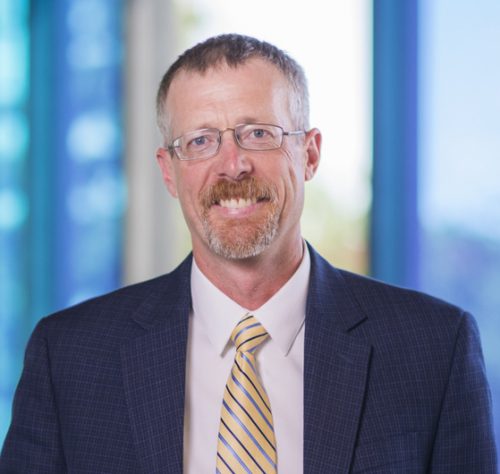Friday Focus: The Speed of Trust
October 25, 2019

— by Dan White, chancellor
In his book, "Winning Every Day," Lou Holtz says that every employee asks three questions of their leaders. These are: “Are you committed to the organization, can I trust you, and do you care about me?” While the former Notre Dame football coach refers to these three questions in the context of leadership, they are a useful set of questions for each of us to ask not just about our leaders, but about ourselves as leaders, colleagues, parents, or friends. Do we behave in ways that demonstrate commitment to the organization, will build trust, and are caring?
Stephen M. R. Covey wrote the "Speed of Trust." It is an excellent read that lays out the importance of trust for leaders in the following order: self, relationships, organizations, markets and societies. The book discusses the concept of a trust bank and the actions and behaviors that constitute withdrawals and deposits of trust. It also introduces the concept of a trust tax and a trust dividend. They are essentially the same. Actions we take that build trust make us more effective, our relationships more productive, and our organization more efficient. These actions make deposits in the trust bank and pay a dividend. Nothing speeds up business like trust and nothing slows it down like a lack of trust. I am sure that you see this in your everyday dealings. If you trust someone, you don’t need to check and double check what they said to be true. You can act on the information and be confident. You operate with the speed of trust.
The bottom line is that to be an effective organization we have to have trust at many levels. In this paradigm, it all starts with us and how we behave. This is our self-trust. Do we do what we say we are going to do, keep commitments to ourselves, and truly care about the things we espouse? Particularly as leaders, being true to ourselves sets the foundation of being true to others. According to Covey, there are four core values to self-trust: integrity, intent, capabilities and results. These can be described in short as, do we walk our talk, act in the best interest of others, have the capabilities to do the job we have, and do we finish what we started?
I don’t need to write it all here because Covey already laid it out in a clear and thoughtful way. Two concepts stick out for me. First, trust and trusting relationships are the responsibility of each of us as individuals and us together. Second, it is never too late to rebuild trust where it has been lost. Begin building trust today. Begin by trusting yourself, trusting others.
I can say from personal experience that nothing builds trust like empowerment. When I was a new PhD student at Notre Dame, I went to my first meeting with my advisor, ready to chart a detailed path forward (I was already an engineer). I hoped to spend the next hour of my life planning the next 4 years. I had asked that Robert Irvine be my advisor because a company had agreed to pay for my education if I worked with Dr. Irvine. That was an easy choice, and surely he has a great plan. My first question to my new advisor was “How often shall we meet, weekly?” His response puzzled me at first. “I don’t care if we don’t meet for the next 4 years,” he said, “When you need something come see me, otherwise go get your work done.” That was it. That was the whole meeting. What I learned, and still remember almost 30 years later, is that Dr. Irvine had empowered me with my education and my future. It took just five minutes. He trusted both that I would figure it out and that I would know when I needed help. The lesson I learned was that trust is empowerment. Trust people in your work environment with information and decisions. There are challenging times ahead and trust in our organization will be a key part of getting us through and making us better.
I share the optimism that Vice Chancellor Champagne displayed in his recent leadership column. UAF is a world class university with a world class future. Thank you for being a part of it. Thank you for bringing your A game. And thank you for what you do to enable UAF to gain the inherent efficiencies that accompany the speed of trust.
Thank you for choosing UAF. You belong here!
Friday Focus is a column written by a different member of UAF’s leadership team every week.


